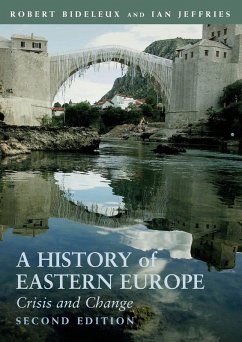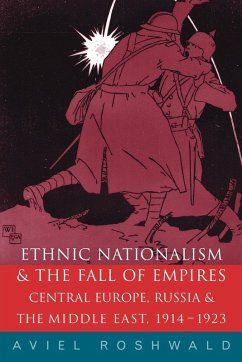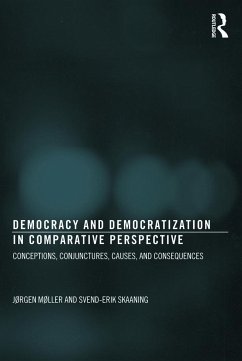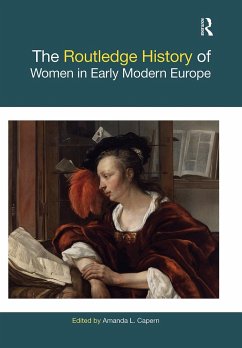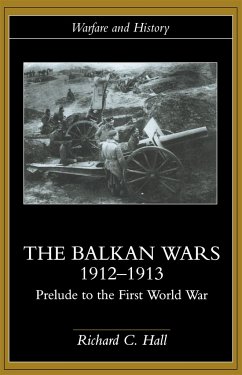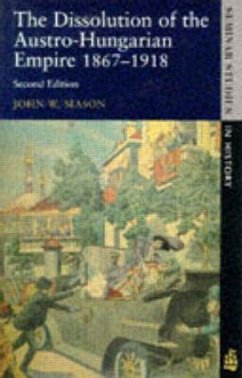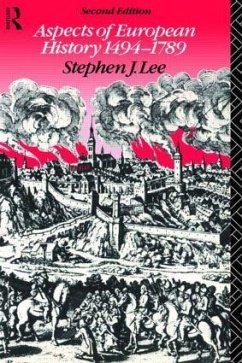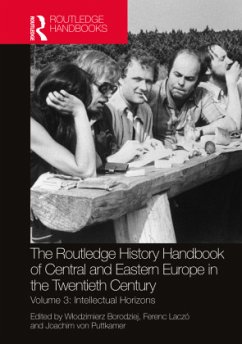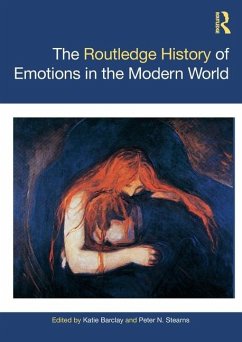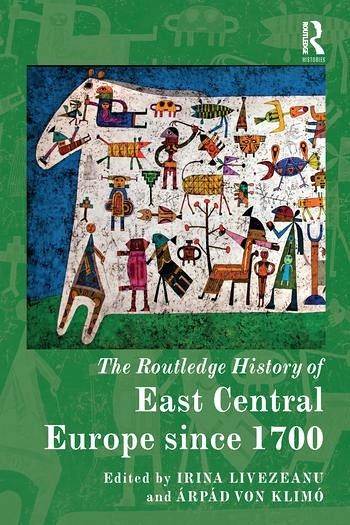
The Routledge History of East Central Europe since 1700
Versandkostenfrei!
Versandfertig in 6-10 Tagen
50,99 €
inkl. MwSt.
Weitere Ausgaben:

PAYBACK Punkte
25 °P sammeln!
Covering territory from Russia in the east to Germany and Austria in the west, The Routledge History of East Central Europe since 1700 explores the origins and evolution of modernity in this turbulent region. This book applies fresh critical approaches to major historical controversies and debates, expanding the study of a region that has experienced persistent and profound change and yet has long been dominated by narrowly nationalist interpretations.Written by an international team of contributors that reflects the increasing globalization and pluralism of East Central European studies, chap...
Covering territory from Russia in the east to Germany and Austria in the west, The Routledge History of East Central Europe since 1700 explores the origins and evolution of modernity in this turbulent region. This book applies fresh critical approaches to major historical controversies and debates, expanding the study of a region that has experienced persistent and profound change and yet has long been dominated by narrowly nationalist interpretations.
Written by an international team of contributors that reflects the increasing globalization and pluralism of East Central European studies, chapters discuss key themes such as economic development, the relationship between religion and ethnicity, the intersection between culture and imperial, national, wartime, and revolutionary political agendas, migration, women's and gender history, ideologies and political movements, the legacy of communism, and the ways in which various states in East Central Europe deployed and were formed by the politics of memory and commemoration. This book uses new methodologies in order to fundamentally reshape perspectives on the development of East Central Europe over the past three centuries.
Transnational and comparative in approach, this volume presents the latest research on the social, cultural, political and economic history of modern East Central Europe, providing an analytical and comprehensive overview for all students of this region.
Written by an international team of contributors that reflects the increasing globalization and pluralism of East Central European studies, chapters discuss key themes such as economic development, the relationship between religion and ethnicity, the intersection between culture and imperial, national, wartime, and revolutionary political agendas, migration, women's and gender history, ideologies and political movements, the legacy of communism, and the ways in which various states in East Central Europe deployed and were formed by the politics of memory and commemoration. This book uses new methodologies in order to fundamentally reshape perspectives on the development of East Central Europe over the past three centuries.
Transnational and comparative in approach, this volume presents the latest research on the social, cultural, political and economic history of modern East Central Europe, providing an analytical and comprehensive overview for all students of this region.





